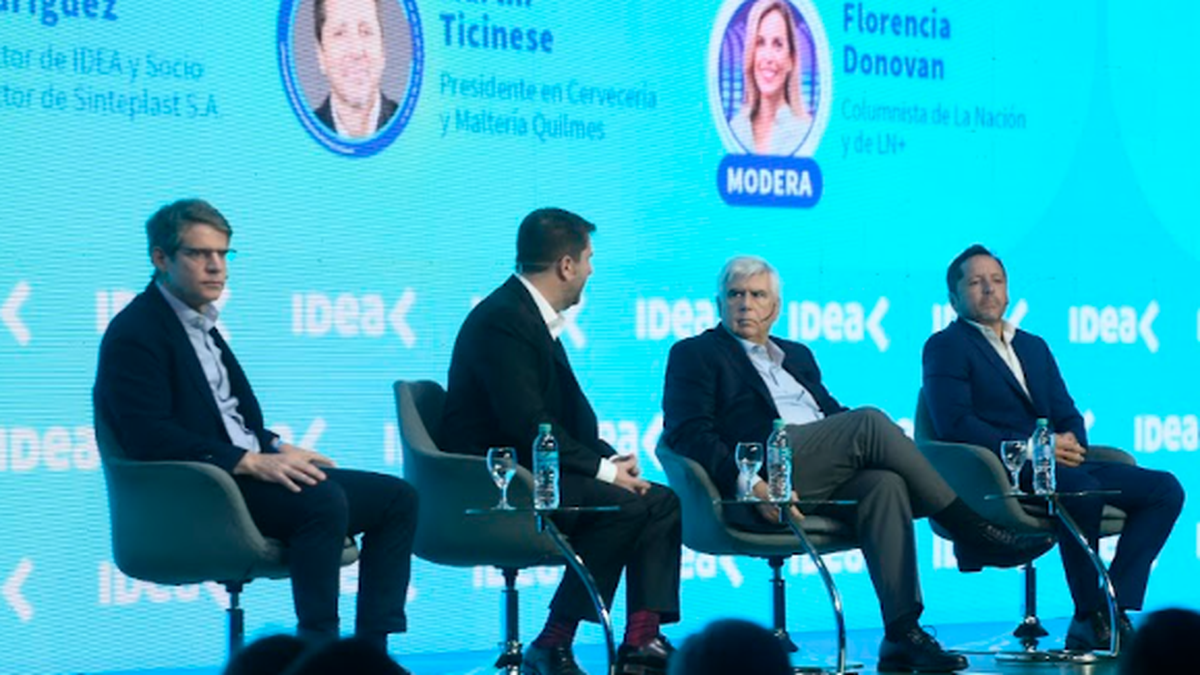15 months after the launch of the national law that forces businesses to discriminate weight of taxes in the final price of the products and services they sell, there is 19 provinces that seem to have no intention of joining.
This is what he pointed out Matías Olivero Vila, president of the Logic Foundation, entity that has maintained a persistent campaign in favor of tax reductions and transparency for a couple of years. The manager partly reflected the claims of the businessmen who participate in the 61st Annual Colloquium of the Institute for Business Development of Argentina (IDEA) which takes place in Mar del Plata.
In addition to the refusal of some governors to adhere to the Fiscal Transparency Law, Businessmen showed their concern about the impact of tax pressure on the final price to consumers.
Last year, in one of the few initiatives that achieved consensus, Congress approved the Fiscal Transparency Law which forces businesses to discriminate taxes on invoices. Olivero Vila explained that of the 24 jurisdictions, only Mendoza and Chubut joined, while Buenos Aires, Santa Fe and Córdoba are in the process of joining. The rest do not seem to give signs in favor.
“It is up to us to demand from civil society, the third sector, business, citizens in the networks, that we be played fairly. This photo 15 months into this regime is unacceptable. “There is nothing more politically correct than demanding transparency and there is nothing more politically incorrect than rejecting it from the other side.”stated the head of Lógica, within the framework of a Thursday in which businessmen dedicated themselves to analyzing the effect of taxes on competitiveness. The manager added that there are 19 provinces that are against it “and speaking in football terms, this is playing dirty.”
How much do taxes impact the final consumer?
Nicholas Browngeneral director of the La Anónima Supermarket, participated in a panel in which the problem of taxes on final prices was addressed. He stated that “The impact of evasion is very high” in the commercial sector.
“If at the country level evasion is 35%, in commerce those levels they are at 55% and labor informality at 65%,” he explained. Brown recalled that supermarkets are an activity in which work is carried out with limited profitability margins., and therefore, the tax factor can be decisive.
“A merchant who works 100% informally can sell 30% less than another who is formal,” complained the director of La Anónima, who, although he supports the idea of a tax reform like the one promoted by the Government, today is more inclined to reduce evasion. “I have seen very little progress in the fight against evasion. May the referee, which is the State, make us all play by the same rules. The fiscal surplus so far is not reflected in a tax cut. The time has come for the State to put its pants on in terms of better oversight,” he assured.
For his part, Andres Cavallari, CEO of the oil company Raizen Argentina, assured that the sector in the country is very efficient and has a short value chain, which is why there is no evasion. Thereforethe effect of taxation is completely discharged on the final consumer. “Of every 100 pesos paid at a pump, 44 or 45 are taxes of all kinds,” he synthesized. The biggest burden on the sector is in the Road Taxes that municipalities began to charge, which are applied against the liter of fuel. “A refinery, depending on where it is located, can pay up to 8 municipal taxes, which at the end of the day are paid by the final consumer. The rates must be applied with criteria, reasonableness and consideration,” said Cavallari.
For his part, Claudio Rodríguez, the owner of the Sinteplast paint factory, pointed out that in that sector The tax burden affects the final price of the product by 37%. The businessman commented that the company did a comparative job of tax costs with Paraguay, Uruguay and Bolivia, where in Argentina the final cost was 153 points. The cheapest was Paraguay with 116, then Bolivia with 123 and Uruguay, with 132 points.
Meanwhile, Martin Ticinese, president of the Quilmes brewery, stated that “The lack of competitiveness that taxes generate for us is very high.” “Today we are playing with one less player,” he said in relation to the industry when using a soccer metaphor.
Source: Ambito




